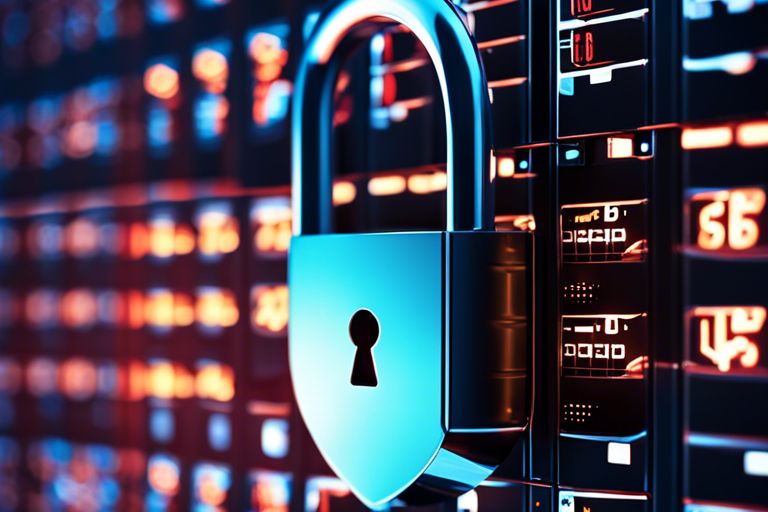Most businesses rely on dedicated server hosting to store crucial data and ensure their online presence remains strong. However, many are unaware of the security risks that come with this type of hosting. In this blog post, we will explore the best practices you can follow to secure your dedicated server effectively. From implementing firewalls and regular security audits to keeping software up to date and creating strong passwords, we will cover all the essential steps to protect your data and maintain a secure server environment. Stay informed and take action to ensure your dedicated server hosting remains secure at all times.
Understanding Dedicated Server Hosting Security
The security of your dedicated server hosting is crucial in safeguarding your data, applications, and online operations. Understanding the key aspects of dedicated server hosting security is essential to protect your valuable digital assets.
Risks and Threats to Server Security
On the internet, dedicated servers are constantly under the threat of malicious attacks and cyber threats. Hackers are always looking for vulnerabilities to exploit, with the aim of gaining unauthorized access to sensitive data, disrupting services, or even causing irreparable damage to your server infrastructure.
Ensuring the security of your dedicated server is imperative to prevent data breaches, downtime, and financial losses. It is essential to stay proactive in identifying potential risks and implementing robust security measures to mitigate threats effectively.
Common Vulnerabilities in Dedicated Servers
On dedicated servers, common vulnerabilities include outdated software, misconfigured settings, weak passwords, and insufficient access controls. These vulnerabilities can be exploited by cybercriminals to compromise your server’s security and infiltrate your systems.
Plus, inadequate monitoring and patch management can leave your dedicated server susceptible to attacks. Regularly updating software, implementing strong authentication methods, and conducting security audits are crucial steps to strengthening the security posture of your dedicated server.
Best Practices for Securing Your Dedicated Server
Regular Software Updates and Patch Management
Some of the most crucial steps you can take to secure your dedicated server involve regular software updates and patch management. Software vulnerabilities are often exploited by hackers to gain unauthorized access to servers, compromising data and disrupting services. It is essential to stay on top of software updates provided by your operating system and application vendors to patch security vulnerabilities and protect your server from exploitation.
Regularly scheduled updates ensure that your server is equipped with the latest security features and patches, reducing the risk of potential security breaches. By implementing a proactive approach to software updates and patch management, you can significantly enhance the overall security posture of your dedicated server.

Implementing Firewalls and Intrusion Detection Systems
Your dedicated server’s defense mechanisms can be further fortified by implementing firewalls and intrusion detection systems (IDS). Firewalls act as a barrier between your server and potential threats, filtering incoming and outgoing traffic based on predefined security rules. IDS, on the other hand, monitor network traffic for malicious activities or security policy violations.
The deployment of firewalls and intrusion detection systems provides an additional layer of security to your server infrastructure, helping to detect and block suspicious network traffic in real-time. By configuring firewalls and IDS properly, you can effectively safeguard your dedicated server from various cyber threats and unauthorized access attempts.
Best practices in implementing firewalls and intrusion detection systems involve continuous monitoring and fine-tuning of security policies to adapt to evolving threats. Regularly updating and analyzing firewall and IDS logs can provide valuable insights into potential security incidents, allowing you to take proactive measures to protect your dedicated server.
Advanced Hosting Security Measures
Little details can make a big difference when it comes to the security of your dedicated server hosting. Implementing advanced security measures can significantly reduce the risk of cyber attacks and data breaches. Here are some best practices to follow:
- Data Encryption and Secure Access Protocols
- Regular Security Audits and Compliance Checks
| Advanced Security Measures | Benefits |
| Implementing strong encryption algorithms | Protects sensitive data from unauthorized access |
| Enforcing multi-factor authentication | Adds an extra layer of security to user logins |
| Regularly updating security patches | Addresses known vulnerabilities and reduces the risk of exploitation |
Data Encryption and Secure Access Protocols
Advanced data encryption techniques such as 256-bit AES encryption can help safeguard your sensitive information from prying eyes. Secure access protocols, like SSH (Secure Shell) or VPN (Virtual Private Network), provide secure communication channels for managing your server remotely. By implementing these measures, you can ensure that your data remains secure even in transit.
When considering, protecting your server, regular security audits and compliance checks are crucial. These assessments help identify any security gaps or compliance issues that need to be addressed. Conducting periodic audits allows you to stay one step ahead of potential threats and ensures that your server meets the necessary security standards.
Regular Security Audits and Compliance Checks
Regular security audits involve thorough examination of server logs, network traffic analysis, and vulnerability assessments to detect any suspicious activities or weaknesses in your server’s defenses. Compliance checks ensure that your server meets industry-specific standards and regulatory requirements to protect your data and maintain customer trust.
Maintaining Hosting Security Over Time
Not only is setting up strong security measures important for your dedicated server hosting, but maintaining security over time is crucial to protect your data and infrastructure from cyber threats.
Monitoring and Responding to Security Incidents
On a regular basis, it is essential to monitor your dedicated server for any unusual activity or signs of a security breach. Implement real-time monitoring tools that can alert you to any suspicious behavior immediately. In case of a security incident, have a response plan in place to contain the breach, investigate the cause, and take necessary actions to mitigate the damage.
Creating and Testing Disaster Recovery Plans
Any reputable dedicated server hosting provider will emphasize the importance of creating and testing disaster recovery plans. These plans include regular backups of your data, as well as detailed procedures on how to restore your systems in case of a cyber attack or natural disaster.
The key to effective disaster recovery is not only creating the plan but also regularly testing it to ensure that it works when needed. Conduct disaster recovery drills to simulate different scenarios and identify any weaknesses in your plan that need to be addressed.
Final Words
Taking this into account, it is crucial for businesses to prioritize the security of their dedicated server hosting. By following the best practices outlined in this article, such as regularly updating software, implementing strong access controls, and conducting routine security audits, organizations can significantly reduce the risk of cyber threats and data breaches. Ensuring the security of your dedicated server hosting not only protects sensitive information but also safeguards your reputation and business continuity. Stay vigilant, follow these best practices, and you can rest assured that your dedicated server hosting remains secure and resilient against potential threats.
FAQ
Q: Why is dedicated server hosting security important?
A: Dedicated server hosting security is essential to protect your data, applications, and resources from unauthorized access, data breaches, and cyber attacks. By following best practices, you can ensure the confidentiality, integrity, and availability of your information.
Q: What are the best practices to follow for securing dedicated server hosting?
A: Some of the best practices for securing dedicated server hosting include regular software updates and patches, strong password policies, implementing firewall protection, restricting access to sensitive data, encrypting data transmissions, monitoring server activity, and conducting regular security audits.
Q: How can I enhance the security of my dedicated server hosting environment?
A: To enhance the security of your dedicated server hosting environment, you can also consider implementing multi-factor authentication, intrusion detection systems, regular backups, disaster recovery plans, employee training on security protocols, and staying informed about the latest security threats and trends.

